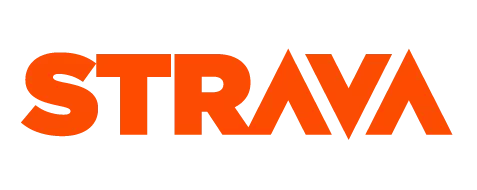Coaching, like any profession, encompasses a wide spectrum of individuals, each with their unique outlook and approach. From hobbyists who coach out of sheer passion to professionals who integrate business acumen into their craft, the landscape is vast. Today, we'll delve into these stages, emphasizing the “transitional coach”, whose journey holds pivotal lessons for any coach with ambition.
Credit to Michelle Lake @coachmichellelake (Coach to Endurance Coaches) who’s post was the inspiration for this content.
Read the full post below or watch the video on Youtube or listen to the podcast episode here, or use the player below
The Hobbyist
A coach primarily driven by passion, with the primary focus on the sport and the athletes, rather than the business side of coaching.
Passion
For the Hobbyist, coaching is not about money; it's about love for the sport and guiding others to achieve their best.
Cost-Centric
When considering software or tools, the immediate thought is, "How much money will this cost me?" rather than "What value will this bring?" Their decisions often revolve around cost savings rather than value additions.
Marketing
There's a belief that a good coach doesn't need marketing. Instead, their work should speak for itself, and athletes will naturally come to them.
Pricing
Given their passion-driven approach, they often price their services lower, emphasizing accessibility over profitability.
The Professional (Endurance Entrepeneur)
A coach who has seamlessly blended their love for coaching with sharp business acumen, striking a balance between passion and profit.
Strategy
Every decision is made with a clear strategic intent. When considering investments like software, the question is, "How much time will this save me?" or “What value will this add?” Time and value, for them, equates to opportunities for growth, both personal, for their clients and for the business.
Marketing
They recognize that to amplify their impact and reach, marketing is not just a powerful tool but a necessity. They embrace it and apply it consistently to ensure they can help as many athletes as possible.
Pricing
Professionals confidently price their services commensurate with the value they provide. They understand their worth and are not hesitant to position their offerings at a premium, ensuring they align with the quality and expertise they bring to the table.
Receiving Coaching
Fully aware of the power of coaching, they don’t just preach its value; they practice it. Investing in business coaching, for them, is a no-brainer – an essential step to elevate their enterprise.
Transitioning to a Professional
The third and possibly most common type of coach is in the midst of transformation, trying to merge their love for coaching with the demands of running it as a business, but often caught in a limbo between the two.
Limbo
They might be coaching full-time, but that doesn’t equate to being a professional or an entrepreneur. Without an adaptive mindset and growth, even a full-time venture will struggle in the long run.
Actions Do Not Match Ambitions
While they have aspirations to scale and grow, they are trapped in the hobbyist mindset, especially when it comes to financial decisions. For instance, when considering an investment, they still have the hobbyist's cost-saving mindset and lack the professional's value-driven approach. They are still looking for places to save money, rather than investing in saving time and effort.
Marketing
Transitioning coaches often find themselves caught between two schools of thought. On one hand, they start to see the value of marketing as they aim to expand their reach and grow their business. Yet, there's a lingering notion that their skills alone should attract clients. This middle ground can lead to sporadic marketing efforts — they might dabble in some promotional activities, but without a consistent strategy, don’t get good results.
Pricing
This group often grapples with pricing. While wanting to move towards a more value-based pricing, they might feel constrained by the pricing legacy of their hobbyist phase or fear of alienating existing clients.
Receiving Coaching
They advocate the value of coaching to athletes but often falter when it comes to investing in their growth, like hiring a business coach. This creates a paradox where they expect others to see the value in their services, yet they're hesitant to seek professional guidance for themselves.
Conclusion
Coaches transitioning towards professionalism find themselves at a significant juncture. On one side lies the comfort of coaching purely out of passion. On the opposite end stands the allure of combing that passion with sustainable profitability.
Here's a truth bomb: a vast number of coaches stall at this stage. Their business reaches a plateau, and the initial enthusiasm begins to dim, overshadowed by the daily grind.
This transitional phase is pivotal. It's where the most growth can occur. Those who navigate this stage effectively, often seeking mentorship, coaching and continuous learning, don't just witness an uptick in earnings but also amplify their impact on athletes. The crucial step is acknowledging this phase and taking proactive measures to evolve, rather than treading water hoping for a change.
Moving from a hobbyist to a pro isn’t just about tools or tactics; it's primarily a mindset change. Recognizing one's value, re-evaluating beliefs about money and growth, and confidently setting prices are essential steps. It's this shift that turns passion into a sustainable long term profession.
Thanks again to Michelle for the inspiration, you can follow her on Instagram @coachmichellelake
Take our Free "Authentic" Marketing Course for Coaches
Designed for endurance sport coaches. Marketing doesn't need to be pushy. The best marketing simply creates a win-win relationship between you and your customers. Take the simple 6 part course to learn more.













